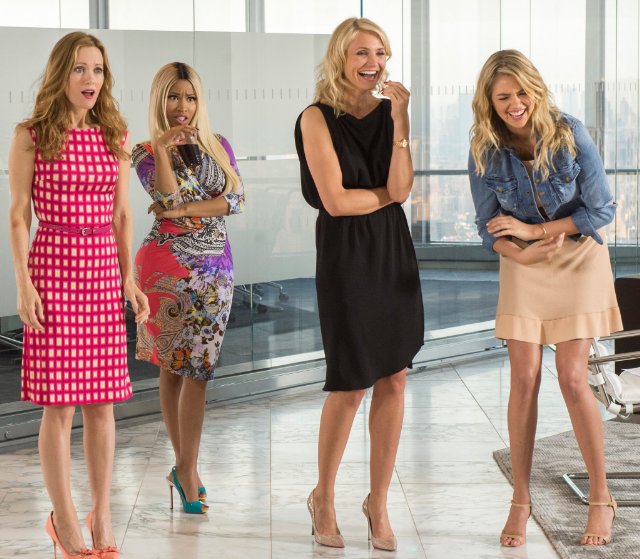I’m not really sure when films about women teaming up to take down a man started to be seen as “girl-power” flicks, but they’re not.
In past years Hollywood has spit out films such as “John Tucker Must Die,” “The House Bunny” and a more recent creation that has caught my attention, “The Other Woman.” These films are being promoted as female-positive and are supposedly meant empower women, but are in fact doing quite the opposite.
“The Other Woman” is a movie that follows the story of three women who discover that they are sleeping with/dating/married to the same man and decide to “team up to plot mutual revenge on the three-timing SOB,” says the IMDb page.
The problem is that even though the message may be positive — women setting aside differences and working together to achieve a common goal — it is still male-centered. It is not empowering to women if all their thoughts, feelings, motives and ideas revolve around a man.
For some reason there is this widespread idea that the only way to have a supposedly strong female character is to pit her against men, to have her overcome some adversity caused by a man or to have her reject the other female characters.
In just under a minute, the trailer for “The Other Woman” already pits two of the female characters against each other in a physical altercation, accuses one of them of being a “stripper” based on her apparel and, in a joking manner, one of the characters says to another, “You don’t think you can take her?” in reference to the main woman discovering her boyfriend’s wife. I had to stop watching the clip after that.
One of the worst parts of films like “The Other Woman”, at least for me, is the type of press coverage they receive. A quick Google search of the film’s title pulls up articles such as “Cameron Diaz and Kate Upton are Hotter than ever for ‘Other Woman’” and “Kate Upton Dawns Bikini in New Clip from ‘Other Woman.’”
This coverage does nothing to promote the careers of the actors, directors or writers of this film; rather, the articles draw attention only to the positives and negatives of their physical appearances. This kind of objectification of females in film only adds to the gross overarching problem of misrepresentation in the media.
A film about three white, heterosexual, privileged women trying to get revenge on a white, heterosexual, privileged man is not progress for the mainstream entertainment business, an arena that desperately needs a reality check.
